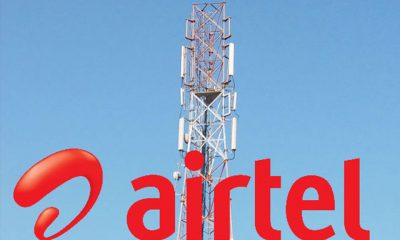The Nigerian Communications Commission (NCC) has directed Mobile Network Operators (MNOs) and Internet Service Providers (ISP) in the country to comply with regulatory frameworks emplaced by the Commission towards ensuring security and safety of their networks for telecom consumers.
The Executive Vice Chairman and Chief Executive Officer (EVC/CEO) of the Commission, Prof. Umar Danbatta, gave the charge at the 2023 annual Nigeria DigitalSense Forum, focused on Internet Governance for Development, which took place in Lagos recently.
Addressing stakeholders at the event, Danbatta said one of the regulatory framework put in place by the Commission is the Internet Code of Practice (ICP for telecom industry, which is essentially to protect the right of Internet users to an open Internet and provide clear guidelines to Internet Access Service Providers on the use of traffic management practices.
He said the Internet Code also outlines the obligations of Internet Access Service Providers in relation to the protection of consumers’ personal data as well as lists the obligations of Internet Access Service Providers in the handling of offensive and potentially-harmful content, and the protection of minors and vulnerable audiences online; among others.
Through upholding the tenets of Internet Governance Code, Danbatta said the Commission, in collaboration with other stakeholders can make networks safe and get telecom consumers protected online.
Speaking to the theme of the event: “5G: Data Governance, Safety and Security in Nigeria”, Danbatta said building robust legal and regulatory frameworks is a crucial requirement for effective data governance in Nigeria and that the ICP provides the framework in this regard.
The EVC, however, underscored the need for telecom licensees, especially the MNOs and ISPs, to adhere strictly to industry frameworks that seek to enthrone effective governance in Internet delivery services.
Represented by the NCC’s Head, New Media and Information Security, Dr. Chidi Diugwu, the EVC said with the emergence of new technologies such as the Fifth Generation (5G), currently being deployed in Nigeria, the need has come to pay greater attention to the issue privacy, data integrity and online trust across telecom networks.
“As we embrace the transformative potential of newer technologies such as 5G, we must prioritize safety concerns because the amount and speed of data generated using 5G technology is unprecedented. As such, we need to always prioritise consumer privacy, transparency, and ethical data use; and this can be achieved by cultivating trust and handling data responsibly, and by doing so, we can unlock the full potential of 5G technology and promote innovation in Nigeria,” he said.
While emphasizing that the Nigerian Communications Act (NCA) 2003 requests NCC’s licensees to prevent their network facilities or services from being used in for the commission of any offence under any law in operation in Nigeria, Danbatta said “In this regard, licensees are required to collaborate with the Commission by complying with their legal and regulatory obligations towards ensuring effective Internet governance in Nigeria.”

 Cover Story1 week ago
Cover Story1 week ago
 Innovations1 week ago
Innovations1 week ago
 IT in Banking1 week ago
IT in Banking1 week ago
 Training and e-Learning1 week ago
Training and e-Learning1 week ago